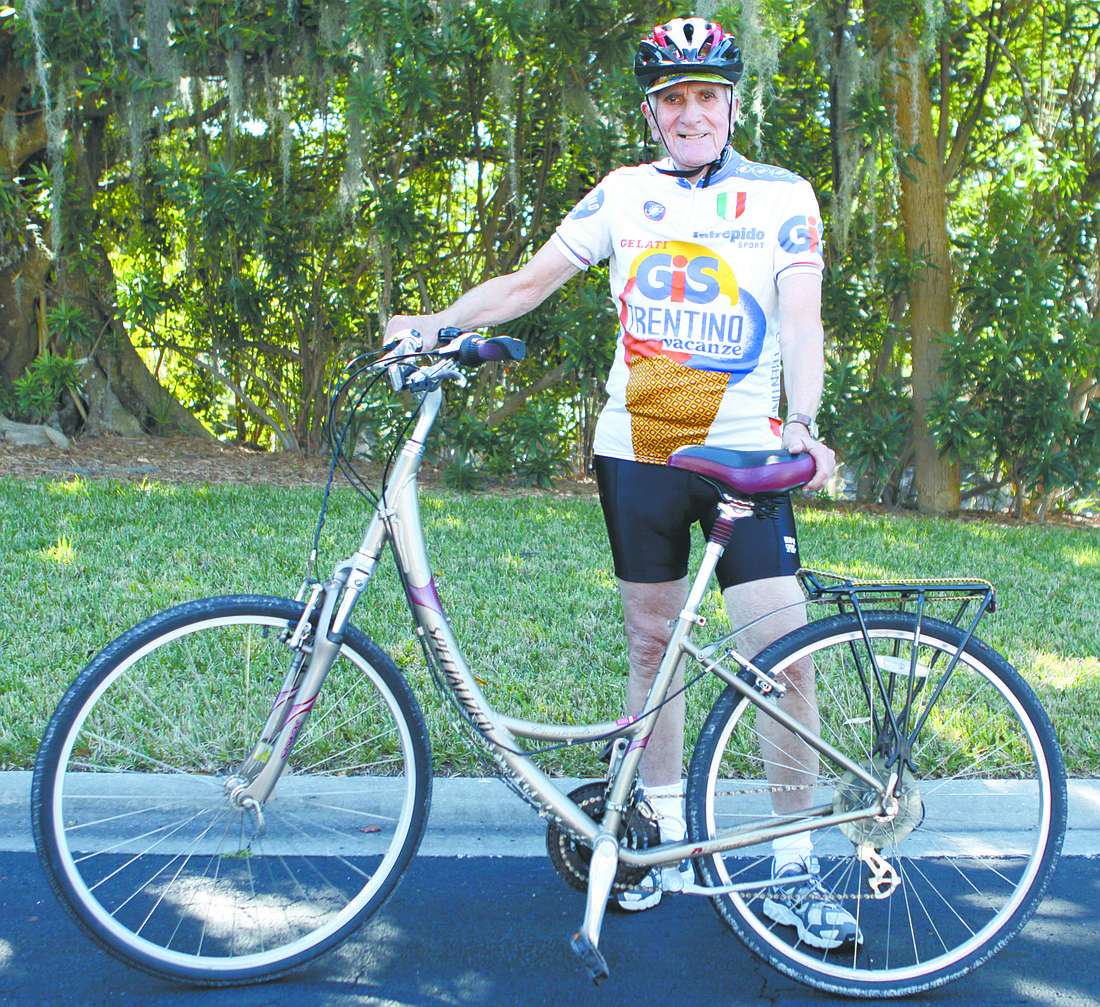- May 5, 2024
-
-
Loading

Loading

It is well documented that exercise is a powerful defense against heart attack and stroke, so when a paper titled, “The War on Arteriosclerosis,” by Longboat Key’s Dr. Arthur Ancowitz was sent to The Longboat Observer, we knew where to put it. And, given that Oct. 29 was World Stroke Day, we knew when. Here we are excerpting Ancowitz’s paper. You can read it in its entirely at www.YourObserver.com.
Arteriosclerosis
Americans are under attack. The casualties are more than we have suffered in all of our foreign wars. This year an estimated 785,000 Americans will have a first heart attack, and 795,000 will suffer a stroke. The cause is arteriosclerosis.
We need to declare war against arteriosclerosis. Rather than bullets and bombs, our best weapon is prevention.
The process of arteriosclerosis
Arteriosclerosis, or hardening of the arteries, is characterized by the buildup of fats, cholesterol, calcium and cellular debris within the artery walls. Both physical and chemical injuries to the inner lining of the arteries can start the process that leads to plaque formation. Plaque in the arteries leading to the brain or heart obstructs the flow of blood to those vital organs, compromising their oxygen supply.
Preventing arteriosclerosis
What measures can we take to prevent this process? Blood pressure readings above 140/90 can damage arteries and increase the risk of a stroke three-to-five fold. Reduced salt intake, weight reduction and moderate exercise can all help lower blood pressure.
On average, Americans eat 3,436 milligrams of salt daily, but to prevent high blood pressure, salt intake needs to be reduced to 1,500 milligrams daily. Reduced salt intake could prevent an estimated 102,000 deaths annually.
Facts about fats
Fat and cholesterol play an important role in the formation of atherosclerotic plaque. Replacing saturated with unsaturated fats in the diet is an important part of both stroke and heart-attack prevention.
Unsaturated fats help lower both total and LDL cholesterol — the bad kind. Conversely, saturated and trans fat intake increases both total and LDL cholesterol. Trans fats also decrease HDL cholesterol — the good kind.
The war on arteriosclerosis
Long-term preventive strategies such as a daily low-dose of aspirin, low-fat diet, blood pressure control, exercise, use of statins, control of diabetes, cessation of smoking and weight loss can be used to prevent arteriosclerosis.
Research has now brought us to an era in which we have the knowledge to take effective countermeasures against arteriosclerosis and prevent innumerable heart attacks and strokes. Research in developing vaccines to prevent arteriosclerosis is a dream that may come true.
Isn’t it about time we recognized the danger to our society and declared war on arteriosclerosis? Every one of us needs to enlist and become a “general” in this war, which we can — and must — win. The life you help save may be your own.
BOX
How much exercise?
In 2007, the American College of Sports Medicine and the American Heart Association released physical activity guidelines that updated those issued in 1995.
Healthy adults under age 65
• Moderately intense cardio 30 minutes a day, five days a week, or
• Vigorously intense cardio 20 minutes a day, three days a week, and
• Eight-to-10 strength-training exercises, eight-to-12 repetitions of each exercise twice a week
Healthy adults over age 65
• Moderately intense cardio 30 minutes a day, five days a week, or
• Vigorously intense cardio 20 minutes a day, three days a week, and
• Eight-to-10 strength-training exercises, 10 to 15 repetitions of each exercise twice to three times per week
If you are at risk of falling, perform balance exercises and have a physical-activity plan.
Arthur Ancowitz, MD, is author of “Strokes and Their Prevention” and “The Stroke Book.” E-mail your questions for Ancowitz about strokes to [email protected].
Molly Schechter is an ACE-certified personal trainer with a specialty in older adult fitness plus YogaFit Instructor Training, SCF Yoga Fundamentals and Power Pilates™ Mat Certifications. She teaches classes at the Bayfront Park Recreation Center and the Longboat Key Club. E-mail her at [email protected].
To read Ancowitz's full article on arteriosclerosis, click here.